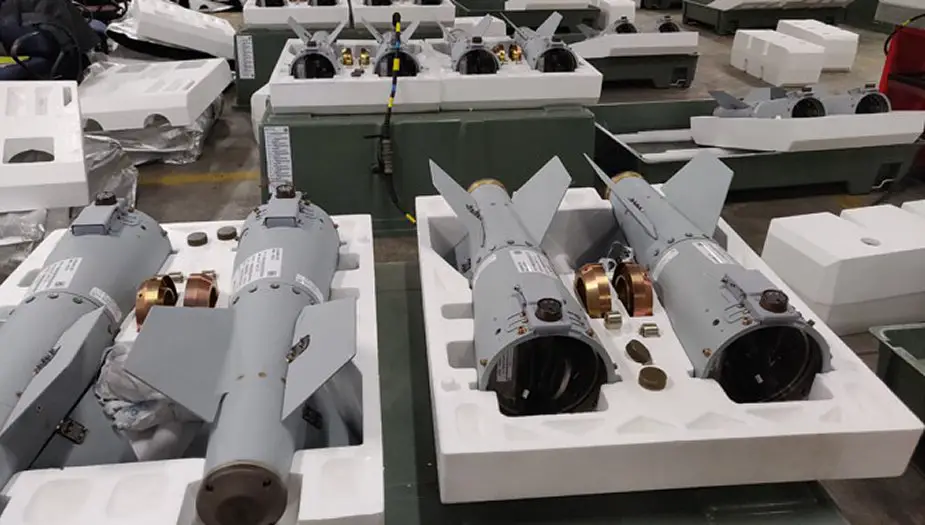Breaking news
NATO helps Allies speed up sharing of weapons.
On Wednesday 27 March 2019, Belgium successfully transferred 92 GPS-guidance kits for precision-guided munitions (PGMs) to Denmark under a new and much-accelerated process. The exchange conducted under the NATO multinational Air-to-Ground PGM project allowed the two Allies to bring down the required time for the transfer from months or weeks to days. This provides participants in the project with better options for re-supplying their own stockpiles of munitions in a conflict.

On Wednesday 27 March 2019, Belgium successfully transferred 92 GPS-guidance kits for precision-guided munitions (PGMs) to Denmark under a new and much-accelerated process (Picture source: NATO)
Legal and technical obstacles had previously prevented quicker transfers of PGMs between Allies and partners. The NATO Air-to-Ground PGM project helps its participants to overcome these hurdles by leveraging an innovative U.S. approach for simplifying the multinational acquisition and exchange of U.S. sourced PGMs, coined the “Lead Nation Procurement Initiative”. Beyond easier and quicker transfers the NATO Air-to-Ground PGM project also enables participants to save money by acquiring PGMs together. To achieve this, the NATO Support and Procurement Agency (NSPA) acts as the lead buyer for combining the requirements of participants with the intention to achieve lower per unit cost through multinational buys.
Eleven Allies and one partner nation are currently participating in the project – Belgium, the Czech Republic, Denmark, Greece, Hungary, the Netherlands, Norway, Portugal, Poland, Spain, the United Kingdom, and one Partner – Finland. It is expected that the two additional Allies will join this project during the June meeting of the NATO Defence Ministers.


























